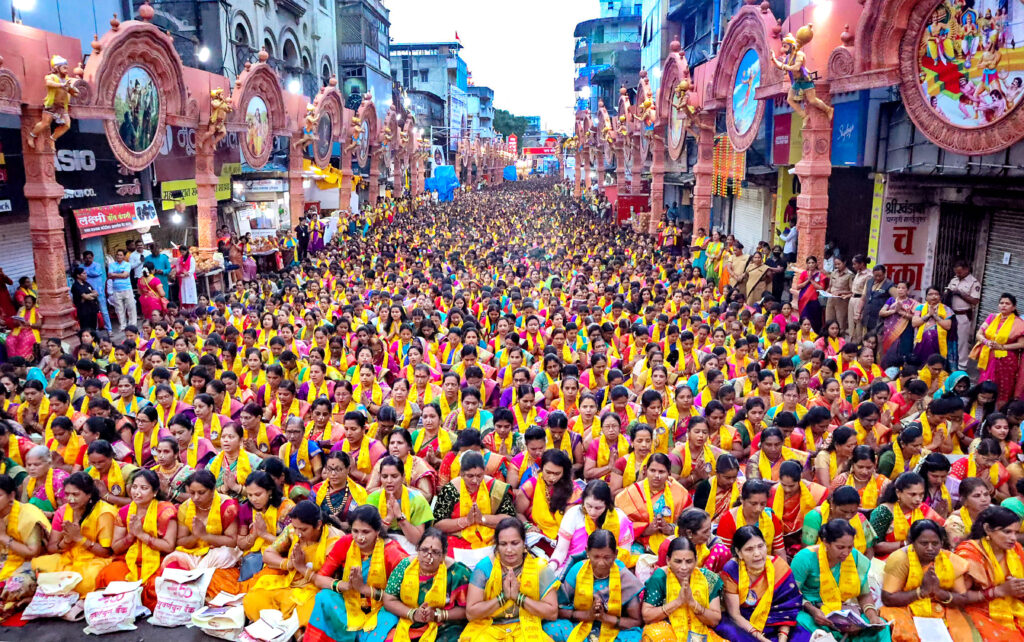At sunrise in Pune, the voices of 35,000 women rose in unison, reciting the Atharvashirsha for Lord Ganesha. The sheer force of the chanting filled the city, no loudspeakers required.
A City Wakes to Collective Devotion
Before the day had fully broken, Pune witnessed a remarkable sight: thousands of women gathering for a mass recitation of the Atharvashirsha, a Sanskrit hymn dedicated to Ganesha. Organized as part of Ganesh Chaturthi celebrations, the event drew women of all ages, their rhythmic chanting carrying through temple courtyards and city streets.
Women Take the Lead
In a festival often defined by processions and amplified sound, this gathering highlighted the central role of women in sustaining tradition. Clad in saris and holding prayer books, they recited in harmony, underscoring that devotion did not need machinery to be heard. “This was not just prayer—it was a declaration of strength and unity,” one participant remarked.
Tradition Meets Community Spirit
The mass recitation became more than ritual; it was a moment of civic identity. Locals described waking to a city transformed by the sound of prayer, echoing far beyond the immediate gathering. Organizers called it one of the largest women-led Atharvashirsha recitals in recent memory, and a symbol of how ancient practices still anchor modern urban life.
The Sound of Faith Without Amplification
In an age of constant digital noise, the gathering carried a quiet but profound message: that faith amplified by community requires no microphones. For Pune, the event was a reminder that cultural continuity rests not just in festivals but in the collective voices that sustain them.


